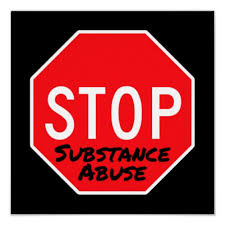Rehab Articles

When it comes to substance abuse treatment there are many different types of programs to choose from, and one of these is a luxury rehab, also frequently called an upscale treatment option. Many people mistakenly believe that this is an option only for celebrities and the very wealthy but this is actually not true. Luxury programs can offer many treatment benefits that others do not, and in some cases the results and recovery achieved are permanent. Many government and charity operated treatment programs for drug or alcohol abuse have a very limited menu of treatment methods available because they must operate on a shoestring budget. Usually these programs do not have individual counseling, which is generally viewed as one of the most effective treatment methods for substance abuse, because this method can be expensive to provide.
Another big consideration with substance abuse treatment at a luxury rehab is insurance coverage. While many insurance policies will cover outpatient group counseling few will cover the cost of an extended inpatient stay at a high end luxury rehab because of the price. Some of the most effective programs and facilities can run tens of thousands of dollars a month. In order to get a permanent recovery and eliminate the need for several rounds of treatment in between relapses a highly effective program is needed though. Group sessions and outpatient visits, or even a stay in a low budget inpatient program with very restricted treatment options, will not give you the same exceptional results and peace of mind that the best luxury rehabs can.
Rehab Articles

Even today the need for substance abuse treatment tends to carry a stigma attached to it, and it is still common for some people to think that alcohol or drug abuse is simply a lack of willpower or control on the part of the individual. Someone who has a problem needs care that is compassionate and that allows the individual to retain their self respect and dignity. Many programs, especially those designed by the government and those that tend to have a shoestring budget, do not offer the compassionate care that can be very beneficial during treatment. Many who use these programs end up relapsing fairly quickly after they leave, and they continue to suffer with self esteem and confidence issue as well.
Everyone has problems, struggles, and challenges, and no one except god is perfect. Substance abuse treatment professionals who offer judgment or who look down on those that they are treating can actually make recovery more difficult and lower the success rate of the program. Some Christian programs for substance abuse offer compassionate care, with the philosophy that you should hate the sin but not the sinner. Alcohol and drug abuse are no different than mental illness or physical disease, and all of these need to be treated in a compassionate manner in order to help the individual recover and get back to normal. Programs that do not involve staff with compassion are far less likely to achieve the desired outcome, and you could end up requiring several rounds of treatment in order to get better.
Rehab Articles

Heroin addiction has reached epidemic rates in the USA and Canada, and there are many challenges when it comes to substance abuse treatment for this problem. There are many different types of programs and facilities, each with specific treatment methods and techniques offered. Insurance coverage and the cost of treatment also play a role in the decisions made. Many insurance companies in the USA will not pay for inpatient care for heroin addiction, although these same insurers will often pay for medical detox and inpatient treatment for alcoholism. The reasoning from many insurers is that heroin addiction is not a medical emergency that can lead to death. Try telling that to someone whose child is at a risk for overdose and death. Every time heroin is used there is a risk of death, and emergency rooms across North America see these cases every day.
Heroin addiction is an insidious problem, and substance abuse treatment is needed but many people can not get help when they seek it at a community program or local facility because of long waiting lists or being unable to afford the cost of an effective inpatient program and treatment regimen. The most effective programs will involve individual counseling, a soothing and peaceful environment, and a wide range of treatment methods and options to choose from. If you or someone you love struggle with a heroin addiction then treatment is critical, continued use of this drug often leads to an early death from an overdose or other medical complications related to heroin use.
Rehab Articles

A new study shows that individuals in methadone maintenance treatment who have this treatment stopped due to incarceration are far less likely to seek substance abuse treatment when they are eventually released from jail or prison. In the USA eliminating methadone maintenance treatment for inmates is a policy that is widespread. Critics of this policy argue that this type of substance abuse treatment save lives and helps to reduce the spread of communicable diseases among drug users, as well as reducing the drug seeking behaviors of the individual in treatment. Many advocates of this policy view methadone maintenance treatment as replacement therapy, arguing that the user is simply replacing one drug with another, and that the true causes of the addiction in the person are not addressed with this substance abuse treatment option.
The latest methadone maintenance treatment study showed that individuals who were allowed to continue with their treatment during incarceration were between 2x and 6x more likely to keep up with additional substance abuse treatment at a clinic once they left jail or prison. The study results and details were published in The Lancet, the May 28, 2015 edition. According to Center for Prisoner Health and Human Rights at The Miriam Hospital director, Brown University professor of medicine and epidemiology, and one of the study authors Dr. Josiah Rich “What we are doing with methadone in our correctional system is we are systematically taking people off it. It’s the only medication that is summarily stopped upon incarceration. This study questioned that policy to find out what happens. For most of these people, the very reason they are caught up in the criminal justice system is related to their addiction to begin with.”
Rehab Articles

1. If you need help for problems with drugs or alcohol abuse then the first place that you need to look is your health insurance coverage. Some policies will cover specific types of methods or certain facilities or programs. Be prepared though, because there are many policies which do not provide effective treatment in this area.
2. If you do not have health insurance and you need substance abuse treatment then there may be state and government programs which may help pay for this type of help. Do some research and determine which government programs you may be eligible for and then apply to these programs.
3. Ask friends and family for financial help. No wants wants to ask for money but your recovery needs to be the top priority at this point. Most family members and close friends will want to help you get better, and you may be surprised at how fast you can afford effective treatment when the cost is spread out among several people.
4. If you do not have health insurance coverage then there may be charitable organizations which offer treatment for drug or alcohol abuse or who will help to pay the cost for another facility or program. Check out which charities help with this type of need in your community and then contact these organizations.
5. If you can not afford inpatient substance abuse treatment there are free programs n an outpatient basis that can be used. Many AA and NA groups hold daily meetings which do not have any cost to attend. Outpatient counseling may also be offered at a reduced cost or even free of charge.



